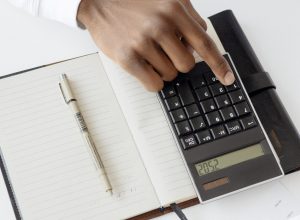Pensions and tax
When considering your retirement income, it is a good idea to have a firm grasp of tax rules surrounding your pension. Here, we will take you through the basic rules regarding pensions and tax, helping you understand your obligations in retirement.
It is a common misconception that income from your pension is tax-free. Normally, withdrawals from your private pension (workplace or personal) will be considered earned income. This means that you will have to pay tax on anything you receive over your personal tax allowance each year (the standard Personal Allowance is currently £12,570). The amount of tax you pay depends on your total income for the year and your tax rate.
However, there is a portion of your pension pot that is tax-free. Normally, you can take 25% of your pension without being taxed. The remaining 75% will then be treated as income.
How and when you pay tax on the remaining sum is dependent on how and when you take your pension. It also depends on how much money you take and other circumstances such as if you still work or have other taxable income.
For tax purposes income from your private pension is part of your total income. This may also include the State Pension, earnings from employment or self-employment, any taxable benefits you might receive, and other income such as investments, property, or interest on savings.

How can I access the 25% tax-free portion of my pension?
You can take the tax-free portion (usually from age 55) of your private pension in one of two ways. Firstly, you could take the full 25% in one go. However, if you do this you cannot leave the remaining 75% untouched. You must choose to access it by:
- leaving it invested in Flexi-Access Drawdown (enabling an adjustable income),
- taking the whole remaining 75% at once,
- by buying an annuity.
Alternatively, you can choose to not take the 25% as a lump sum. Instead, you would access your pension in smaller chunks with 25% of each of the smaller amounts being tax-free. For example, if you took £1000 a month from your pension pot, £250 would be free of tax and the remaining £750 would count as income for tax purposes.
How is the tax on my pension paid?
The private pension provider will pay you money from your pension pot with the relevant tax already taken off.
If you continue to work when accessing your pension, your employer will take the relevant income tax from your wage through PAYE (Pay As You Earn).
If you work for yourself as self-employed you are responsible for paying your own tax through Self-Assessment.

Do I still pay National Insurance contributions in retirement?
You don’t pay National Insurance contributions on any income you receive from your pension scheme. However, if you are below State Pension age and in employment or self-employment, you will pay National Insurance Contributions as applicable.
At State Pension age you will stop paying National Insurance Contributions if you continue to work.
You can visit MoneyHelper or call them on 0800 011 3797, who offer free and impartial guidance to people with workplace and personal pensions for further information on tax and your pension.
Disclaimer
The content of this article is for general information purposes only and should not be construed as legal, financial or taxation advice. You should not rely on the information contained in this article as legal, financial or taxation advice. The content of this article is based on information currently available to us, and the current laws in force in the UK. The content does not take account of individual circumstances and may not reflect recent changes in the law since the date it was created. It is essential that detailed financial and tax advice should be sought in both jurisdictions and any legal advice, if required.
This notice cannot disclose all the risks associated with the products we make available to you. When making your own investment decisions it is important you understand that all investments can fall as well as rise in value and it is possible you may get back less than what you have paid in. You should also be satisfied that any investments you choose are suitable for you in the light of your circumstances and financial position. You should seek financial advice if you are not sure of what’s best for your situation.








